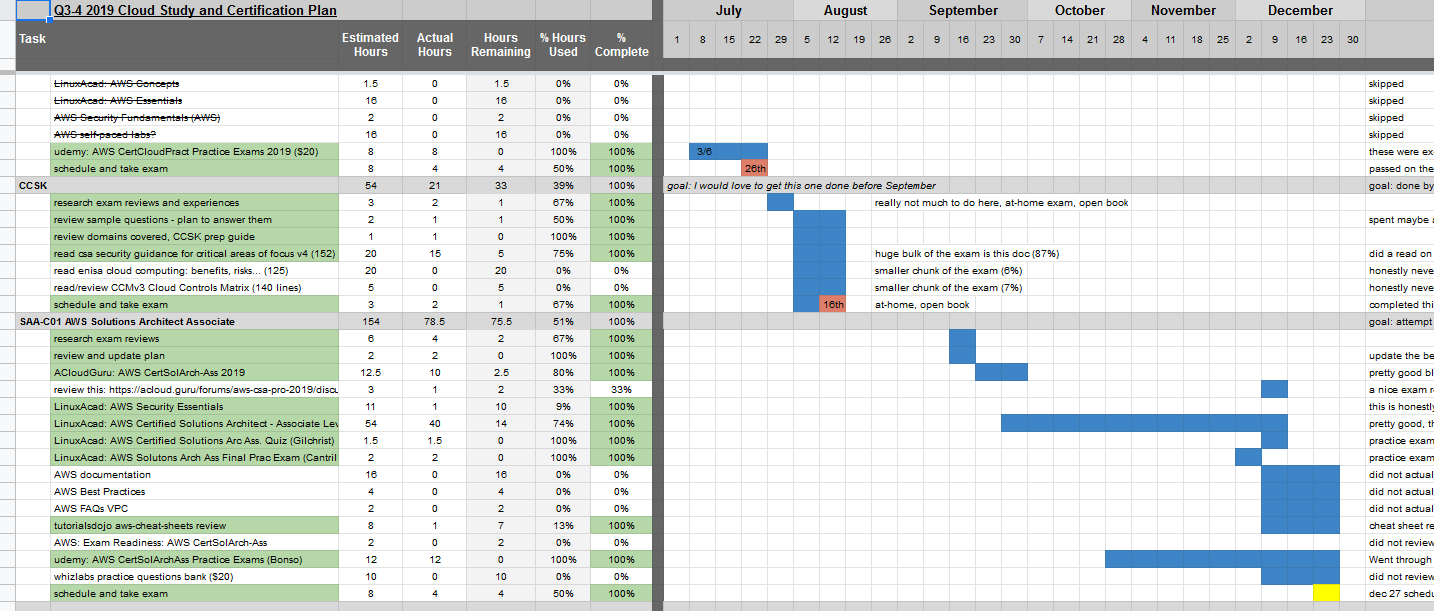Usually when I study for a certification or course, or even for comprehension on a topic, I have steps written down to check off on my journey to that goal. I’ve probably always worked off checklists, but it feels like I rely on them more as I get older, as there’s really no excuse to not use them and forget things or lose ideas to the ether. My time really does have a personal value, and I’d like to make sure I spend it well and efficiently.
When I decided to tackle learning more about cloud security, I knew the topic involved reading and listening to materials on a topic that I’ve not been highly exposed to. And I wanted to make sure I planned out how to spend my time so that I could plan the rest of my year and have an idea when to schedule exams.

The above screenshot is a sheet I maintain on Google Sheets. In it, I basically use a Gantt chart style format to track my progression of tasks and how long they will take. I estimate the hours involved, record the actual hours I spent, and then the remaining hours and % hours used adjust automatically. The % Complete column I update manually. For instance, I may estimate 10 hours for a task, but find it only takes me 4 hours. I can then record 4 hours and still set it to 100% complete.
Do I really care how many hours are left? Not really, but it’s a way for me to practice skills for Project Managers-Lite and be familiar with a sheet like this. Lots of things that PMs do to perform and track projects are intuitive, pragmatic things that I can use for other purposes, even if I don’t know all of the specific terms in some Body of Knowledge.
And since this is just for my own personal tracking, there’s really no grading or performance evaluation based on how accurate or well I track this; it’s really best effort and its accuracy isn’t crazy strict. It’s truly just about keeping myself on target. (And, I suppose, it reminds me what I did on my route to a certification so that I can post about it later without much recollection effort!)
I will also add that one of the more important steps in pretty much every major learning effort I tackle is researching what others have done before me. This was a huge effort in something like the OSCP where I would read reviews and thoughts and threads from others who had experienced and passed the course/exam and what they recommended for prerequisite knowledge and resources to understand prior and during the learning phases. I still do this as much as possible, and it leverages strengths I have in effectively and efficiently Googling and sifting through information and then organizing and prioritizing what I really need to do.
May I consult with you how to pass OSCP? any material recommeded?